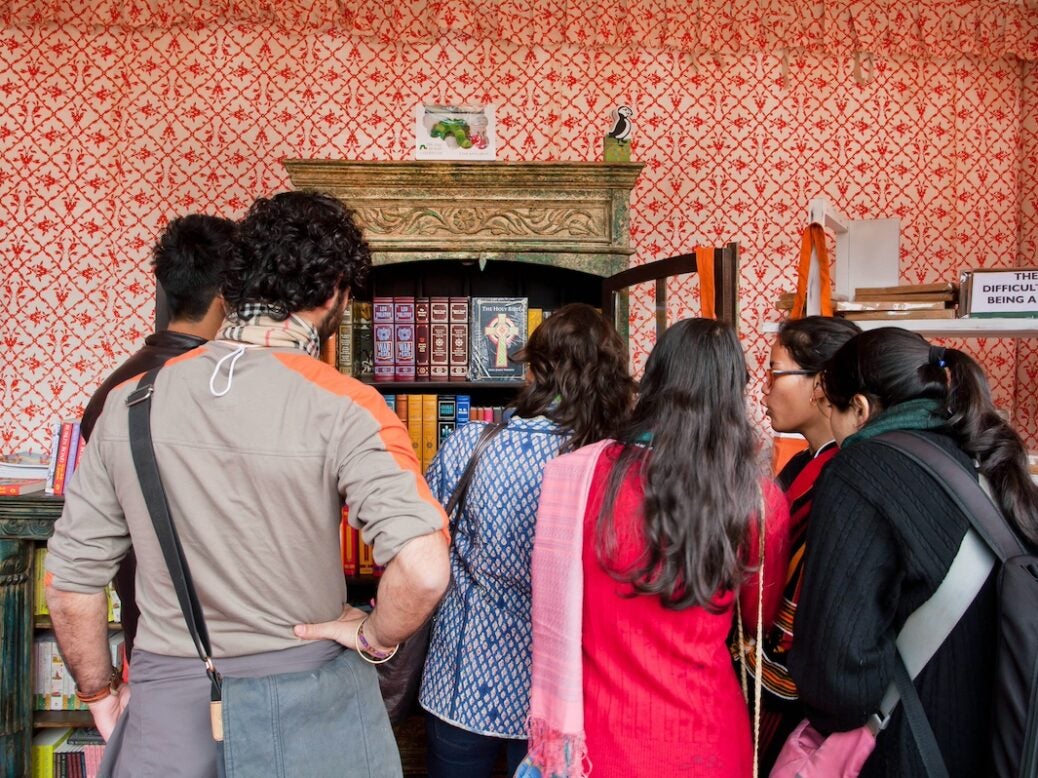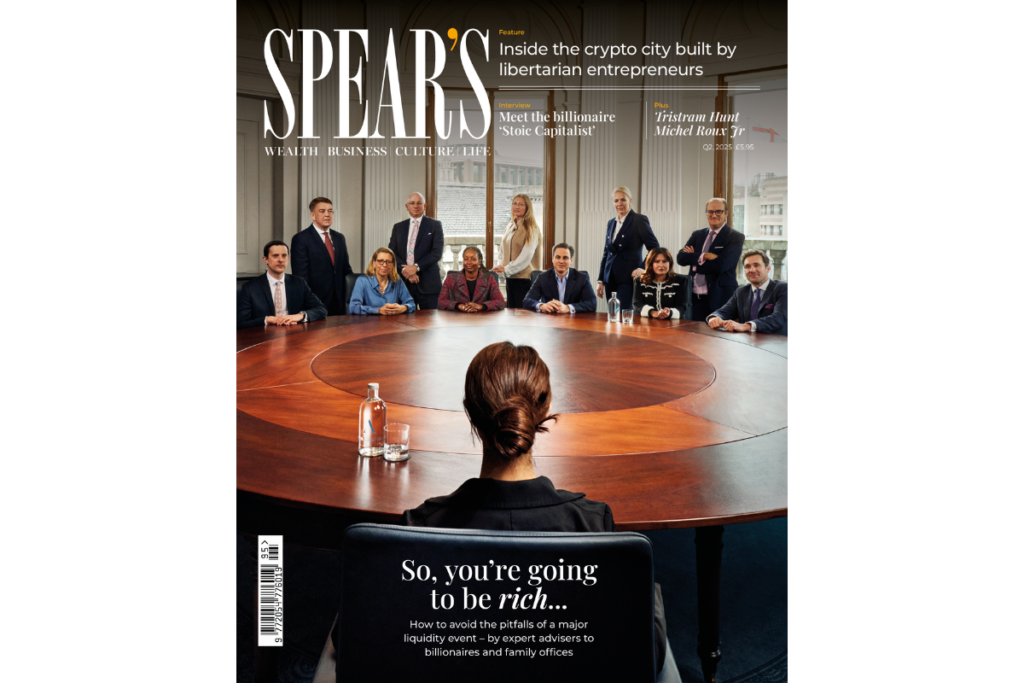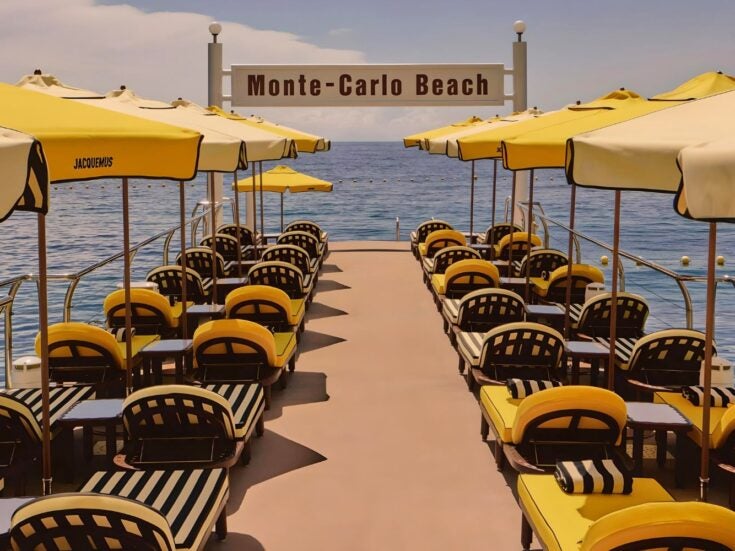
The first time I visited Jaipur, I was a scruffy and clueless 18-year-old backpacker plodding from flea-bitten youth hostel to flea-bitten youth hostel and subsisting on dal and chapatis. What a difference three decades or so make. I have just returned from promoting my new book at the Jaipur Literature Festival, where, though I remain as scruffy and clueless as I was back then, my welcome in India was rather grander. Jaipur is the biggest literature festival in the world, and it feels like it.
[See also: Kings of the Hill: behind the UK’s gated enclave for the rich and famous]
In my three-decade capacity as a book reviewer, literary editor, diarist, sponger and hanger-on, reader, I have been to my fair share of publishing parties. They have, in my experience, run the gamut from glasses of warm white wine in dimly lit central London basements to glasses of warm white wine at Daunt Books, Marylebone, to glasses of warm white wine in the shabby-chic upstairs room at the Union Club. The fancy ones, the ones they throw for the winners of the Booker Prize, sometimes have cheese straws.
But at Jaipur, you are ferried by minibus night after night to a selection of astounding historic palaces and Mughal fortifications, where hundreds of guests are serenaded by live musicians in traditional dress, where whole courtyards twinkle with immaculately positioned tea lights, and murmuring servants circulate with bottomless trays of finger food so delicious that everyone gets a tummy ache long before they even get on to the heaping buffet of Indian delicacies.
[See also: Noughties but nice: Boujis team’s Gallery leads new wave of London nightclub]
It’s an upgrade, no question. It’s a chance, I dare say, for impecunious British writers to get a taste of what it might be like to be an HNW. But it’s more than just a jolly for Anglo writers in the subcontinent, and a chance for publishers to exploit the exchange rate to throw grander parties than they could at home. The flourishing of festivals like Jaipur, and the likewise sumptuous festival in Kerala I went to afterwards, the Mathrubhumi International Festival of Letters, seems to me to give a hint of the growing prosperity and international self-confidence of this Asian tiger. India surpassed the UK to become the fifth biggest economy in the world in late 2021.
Now it’s only extending its advantage, growing at 6–7 per cent a year – and it shows. The panels at these festivals are filled with superstar writers from all over the world, mixing socially and exchanging ideas freely on stage. One panel, on the Gaza conflict, saw Channel 4’s Lindsey Hilsum chairing the Indian essayist and novelist Pankaj Mishra, the British-Palestinian novelist and lawyer Selma Dabbagh, and Navtej Sarna, who as well as writing fiction had a diplomatic career that saw him serve stints as India’s ambassador to the US and Israel, as well as high commissioner in London.
These events make the likes of Hay and Cheltenham look distinctly parochial. Indeed, that panel was a reprise of one which had been cancelled (it’s implied as being too hot to handle) at the Barbican in London. And the shelves of the festival bookshops told a story of Indian self-confidence, too. The festival’s presiding patron is the Scottish-born, Delhi-domiciled historian of empire Willie Dalrymple. Willie’s latest book, The Golden Road: How Ancient India Transformed the World, challenges the chauvinistic idea that Western civilisation came primarily from the Greeks and Romans and propagated east-west along the ‘Silk Roads’.
He shows how Ancient India was Rome’s biggest trading partner, and how its influence – in art, philosophy, religion, science and mathematics – spread to the furthest reaches of China and South East Asia. Willie argues that the Indosphere, as he calls it, made the running in the ancient world. And India is eating it up. At the time of writing, the book has had an uninterrupted run at number one in India’s non-fiction bestseller lists since its publication at the beginning of September. Willie is not, shall we say, quite politically aligned with Narendra Modi’s Hindu nationalism, but heigh ho: historical facts are historical facts; and sales are sales.
Alongside The Golden Road, though, the shelves of the festival bookshop were groaning with Indian success stories – fiction, poetry and business memoirs. A lavishly produced biography of Ratan Tata, the former chairman of Tata Group who died last October, was among the myriad tomes documenting the achievements of India’s industrial giants. It described its subject as ‘one of the most influential and inspirational personalities of our times – an iconic business leader who was instrumental in transforming independent India’s industrial landscape’.
The helmsman of what turned into one of the country’s most vast conglomerates, it’s suggested, did for the modern world what the traders of the Indosphere did for the ancient one. Golden Road for then, you could say – and Tata for now.
This feature first appeared in Spear’s Magazine Issue 95. Click here to subscribe







